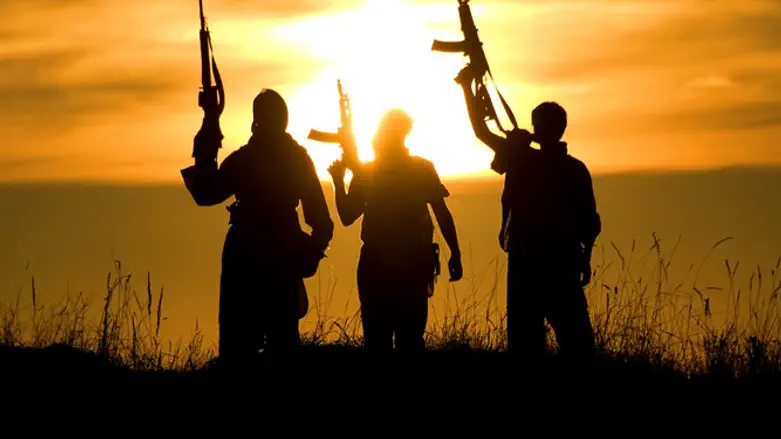
The relationship between the Iranian mullah regime and the Taliban has always been one of suspicion, concern, and mistrust. Today, it is a relationship of necessity. It is imperative for the mullahs to engage with the movement and build a pragmatic relationship with it.
However, this does not change the fact that the Iranian regime feels powerless and is not able to protect Afghan Shiites as it has done in other neighboring countries.
Afghanistan’s Shiites, or the Hazara minority, the third largest ethnic group in the country, representing 10-15% of the total population, have experienced many years of clashes and conflicts with the Pashtun Taliban. They have recently become the targets of Daesh Khorasan, which has carried out several criminal operations against Afghan Shiite mosques, putting the Iranian mullahs’ regime in a very difficult position after moving from hostility to the Taliban to building close relations of interest with the movement.
The dilemma facing the mullahs is the difficulty of intervening in Afghanistan to protect the Shiites, as the IRGC and its militias have done in other neighboring countries. Iran had previouslyintervened in a sectarian manner, arming militias and a network of regional proxies overseen and directed by the Iranian Revolutionary Guards.
Afghanistan should not be an exception to these activities. The Fatemiyoun Brigade, which entered Syria under Iranian leadership, is composed of Afghan Shiite Hazaras. Can the mullahs engage these sectarian forces in the fight against Daesh to stop the group’s attacks on Afghan Shiites?

The Taliban will certainly not accept the presence of Iranian regime militias on Afghan territory. They fear that the Iraqi or Lebanese scenario will be repeated. The Taliban will certainly not accept the presence of Iranian regime militias on Afghan territory. They fear that the Iraqi or Lebanese scenario will be repeated and the influence of these militias will become a dangerous challenge to the future influence of the Taliban government.
The Taliban will certainly not accept the presence of Iranian regime militias on Afghan territory. They fear that the Iraqi or Lebanese scenario will be repeated and the influence of these militias will become a dangerous challenge to the future influence of the Taliban government.
The Taliban are aware of the seriousness of this brigade and the military experience it has gained during the years of war in Syria. Therefore, the mullahs have no choice but to try to find a way to ensure the protection of the Hazara minority without military intervention in the neighboring country.
In any case, it can be said that the IRGC will not undertake direct military intervention in Afghanistan for a number of reasons and considerations, including the fear that the conflict on its territory will become a “quagmire” into which IRGC forces will be drawn.
This makes the idea of intervening on behalf of Iran or other countries an uncalculated and uncertain venture. The mullah regime has viewed any military intervention in Afghanistan with great suspicion for many years.
Since the 1998 Taliban attack on Mazar-i-Sharif in northern Afghanistan and the assassination of several Iranian diplomats, relations between the two sides have been in question. Iran has mobilized its forces on the border with Afghanistan.
But it ultimately refrained from intervening in retaliation for its diplomats on the instruction of Supreme Leader Ali Khamenei, for fear of getting bogged down in the Afghan swamp.
Although the mullahs’ perception of the Taliban has changed, at least in terms of political reconciliation and willingness to gain a foothold in Afghanistan, an Iranian intervention in Afghanistan is unlikely, either to fight the bridle elements or to arm and fund the Hazaras to fight Daesh.
Iran, which has joined the US, Russia, and other countries in the past in supporting an alliance against the Taliban, does not want to engage in a confrontation with the Afghan movement today.
Relations between the two sides have evolved so much that Tehran received a delegation of Taliban representatives from the movement’s interim political bureau in Doha, led by Mullah Abdul Ghani Baradar, now deputy prime minister of Afghanistan, to discuss the situation in Afghanistan. All indications are that Iran is seeking a pragmatic working relationship with the Taliban.
It is trying by all means to work with other countries like Russia, China and India to encourage the movement to form a broad-based government and involve all Afghans in running the country. No one can expect Iranian intervention to protect the Shiites in Afghanistan, either directly or indirectly.
Instead, the mullahs will focus on supporting regional and international efforts to help the Taliban and encourage them to fight Daesh, eliminate it, and commit to providing the necessary protection for Hazaras and their mosques. The group is not only targeting Shiites in Afghanistan, but also threatening many other countries.
Dr. Salem AlKetbi is a UAE political analyst and former Federal National Council candidate
